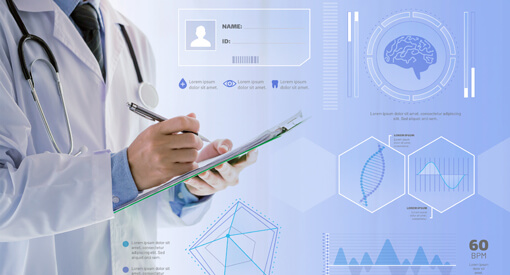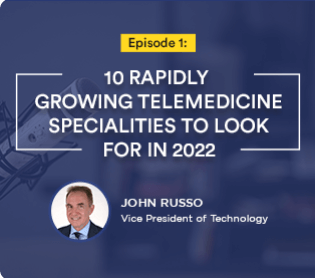What is Data Integration?

Clinical Data integration collects information from different healthcare sources into a single format. It uses components such as healthcare data sources and a master server and avoids unstructured data. The healthcare sector struggles with health integration platforms and maintaining structured data. Structured vs. unstructured data can be understood by considering the who, what, when, where, and how of the data. Integrated health provides the best quality care services to the patients.
Need for EHR Integration in Healthcare
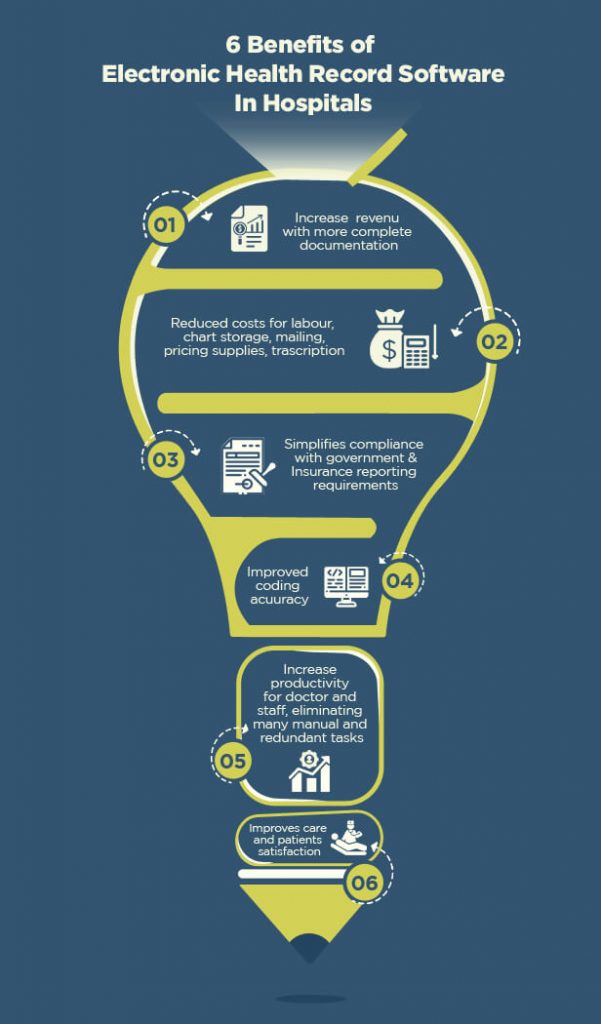
Healthcare professionals work under tremendous pressure and are pressed with time. They deal with maintaining healthcare organizations, staff, and improved patient care. Administrative tasks and advanced paper works become cumbersome for healthcare providers. Healthcare professionals struggle with unstructured data. That is why a healthcare automation solution is needed to bring efficiency to the managed care continuum. An integrated healthcare information system assigns patients to different primary care physicians and using software-based health informatics. EHR integration allows patients to receive care from multiple healthcare data sources. Integrated health mainly seeks to address a patient’s multiple health concerns at one point source and provide the best care plan. Besides, there are several benefits of data integration in healthcare:
- Electronic health records lower healthcare workers’ load. They also provide integrated patient care.
- EHR integrated data is accessible and inputs from healthcare provider solutions are recorded.
- EHR integrated care streamlines the workflow, reduces errors, and improves medical records management.
- It recommends medication by gathering data and insights from many sources.
- Integrated healthcare systems promote fast communication and improve interactions via electronic data exchange.
- Data integration enhances patient engagement systems by reducing waiting times. Also, it allows them to access integrated healthcare online.
- Since healthcare integration gathers inputs from different healthcare professionals, it provides quality care.
- Healthcare integration supports collaboration between healthcare centers and stakeholders.
- Integrated care management increases your profit and helps you stand out among competitors.
Tools for Combating Healthcare Integration Challenges

A data integration tool is utilized in the healthcare integration process on the data source that moves the data to the destination. These tools conduct mapping, transformation, and data cleansing. Choosing the tool that fits your medical service well might confuse you, but select what suits your needs best. Depending upon factors such as data sources, choose tools supporting better-integrated health care.
On-premise: These tools are excellent for integrating data from various local or on-premise data sources. They are installed in a private cloud or local network. These tools comprise optimized native connectors for batch loading from many familiar data sources. But, they require large capital investment in hardware and infrastructure. On-premise data sources may include larger or legacy systems in healthcare. Some common examples of these tools are IBM InfoSphere, Microsoft SQL, and Oracle data service Integrator.
Cloud-based: Many cloud-based solutions are integration platforms as a service (iPaaS). They integrate data from various sources into healthcare integration platforms. These services are designed to handle recent, web-based streaming data sources and the standard databases. Some commonly used cloud-based tools include Alooma, Jitterbit, and Oracle Integration Cloud Service.
Open-source: They can be your best option if you plan to avoid using proprietary and expensive enterprise integrated healthcare solutions. It is also suitable if you would like to have complete control of your data in-house. CloverETL, Karma, Myddleware, and Pimcore are some common open-source data integration tools.
Proprietary: The key thing that sets these apart from open-source data tools is pricing. They are also often developed for specific business purposes. This is one of the most stable and reliable tools.
Top 5 Healthcare Integration Challenges
Healthcare integration is developed for serving patients better and providing quality care services. However, there are healthcare integration challenges you may need to address, of which here are the top 5-
1. EHR Interoperability Challenges:
New technology for integrating data pulls structured data into a data lake. Data compilation and integration need to follow standards set by HIPAA Compliance. Several healthcare organizations adopt healthcare integration. This implies a diversity of data and data sizes. While implementing healthcare integration, remember that big data challenges in healthcare include healthcare interoperability issues. Interoperability can leave you with data silos, and you do not want that. Lack of data standardization can lead to healthcare interoperability challenges. That is why it is essential to agree on a single format and convert data accordingly.
2. Health Data Privacy:

Privacy and compliance can become major concerns in healthcare integration. Some healthcare institutions understand that data should be protected. Data sharing can breach the security, and allow access from unwanted sources. Cloud computing in healthcare has been on the rise to avoid data silos and chaos. So, it requires strict governance to ensure security. Data governance provides a permit to database administrators. It gives access specific data at particular durations. In doing so, you are also being HIPAA Compliant and allowing people to view and analyze the data.
3. HL7 Integration
HL7 interface is used for processing the data in a format that can be interpreted. This integration procedure may create challenges for healthcare professionals and software vendors. Due to their schedules, doctors cannot work in collaboration with a software vendor. As a result, IT groups face healthcare integration challenges of overabundances. This implies that their associations with healthcare organizations may be held up for long periods. IT team may find it difficult to assemble the critical interfaces as per the HL7 standards. Moreover, if the HL7 integration semantics are poor, it can distort. Moving to a new EHR may cause you to lose some previous data, such as patients’ medical history.
4. Data Inconsistency
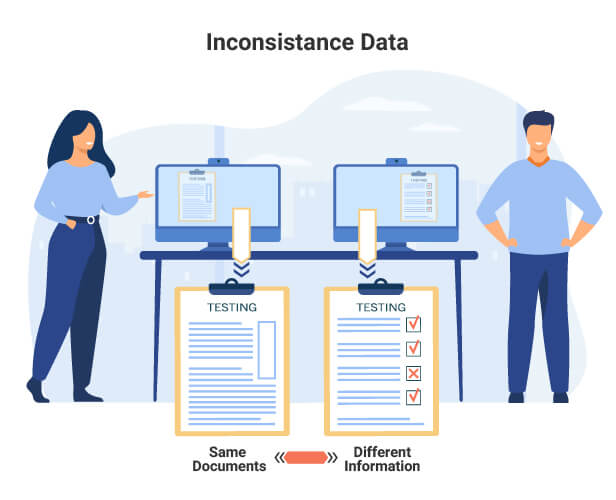
While implanting an integrated healthcare system, data must be consistent. But, healthcare organizations may differ while choosing user applications. This can create inconsistency in the data, thereby affecting the data quality and integrated care delivery model.
5. End-users
Patients, doctors, and nurses gain by using integrated data. It delivers delivering integrated patient care and improving patient experience. Healthcare data is a significant resource, but raw data is difficult to interpret.
How to overcome EHR Integration Problems
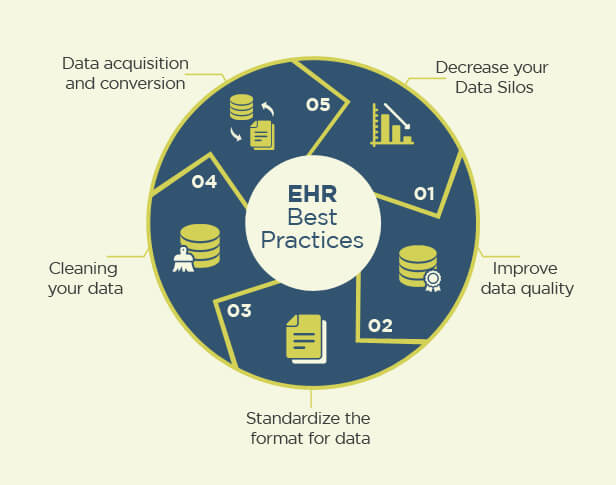
You may be concerned with the data integration challenges associated with health integration. Let us tell you that there are ways to overcome these healthcare integration challenges.
Eliminate data silos: Silos can create complications, and it is best to avoid them. Siloed data cannot be easily integrated, and the issue may worsen if you have different types of data. One of the easiest ways is to agree on standardized data. This will make data compatible for integration and assist you in resolving healthcare integration challenges.
Solve HL7 healthcare integration challenges: You can use HL7 interface engines to solve HL7 integration issues with the application interface. PHI should be stored in a second database that will warn you of security risks. Software vendors and healthcare providers can also opt for health APIs. These allow data interchange across separate healthcare integration platforms. It would also give you real-time access to patient records across providers and streamlined billing, thus being cost-effective.
New generation models: Design your integrated strategy with modern technologies such as cloud, mobile integrated healthcare like mHealth and telehealth. It will improve the integrated care delivered. New generation technologies and healthcare analytics solutions allow users to incorporate valuable data.
Data enrichment: Clinical data analytics involving custom healthcare solutions like semantics enrich data. This would help you deal with healthcare integration challenges. Such an approach will support population health management and healthcare providers. If an image in an EMR represents a broken arm, but it is stated differently in claims, semantics can help users identify the difference. Data enrichment stimulates data fluidity and merging and combats healthcare integration challenges.
Develop an integrated strategy: Integrated healthcare information system handles various types and sources of data. There is also a high competition among healthcare organizations. Creating an agile infrastructure and clinical informatics solutions would address challenges. It will assist you in staying ahead of any competition. You can also adopt vertical integration in healthcare. It is a process where organizations at different levels of the supply chain work together. This differs from horizontal integration that occurs when entities in the same market combine. Vertical integration in healthcare will help you save healthcare costs. You should design an effective integrated strategy for overcoming healthcare integration challenges.
Conclusion
Integrated healthcare systems aim at catering to the various needs of patients. Healthcare integration challenges may hamper the quality of your medical services. Although these may seem complicated, you can overcome the healthcare challenges you face. We will help you lower the costs, reduce errors, and give more time to your patients. Patients will experience enhanced engagement and communication with their healthcare providers. Before planning, strategies for healthcare integration challenges, identify your problems. Also, have a skilled IT team at hand to help you with any software complications that may arise. Healthcare integration challenges can be resolved with adequate strategy and resources.
References:
https://www.talend.com/resources/what-is-data-integration/
https://www.skuid.com/blog/why-data-integration-in-healthcare-is-a-big-deal
https://www.youredi.com/blog/benefits-of-data-integration/
https://hevodata.com/blog/data-integration-tools/
https://maxxphase.com/understanding-difference-data-integration-data-interoperability/
https://www.ncbi.nlm.nih.gov/pmc/articles/PMC5565131/
https://www.capminds.com/blog/5-hl7-integration-challenges-you-probably-dont-know/
https://www.healthitoutcomes.com/doc/best-practices-for-overcoming-data-integration-challenges-0001
https://www.snaplogic.com/glossary/data-integration-challenges-healthcare
https://www.chcf.org/blog/is-vertical-integration-bad-consumers/
https://www.commeg.com/2018/05/20/the-pros-and-cons-of-cloud-vs-in-house-servers/
OSP is a trusted software development company that delivers bespoke solutions as per your business needs. Connect with us to hire the best talents in the industry to build enterprise-grade software.
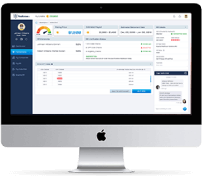
How can we help?
Fill out the short form below or call us at (888) 846-5382
Looking for software solutions to build your product?
Let's discuss your software solutions for your product in our free development acceleration call!
Get In Touch arrow_forwardDiscuss Your Project Handover with a team of expert Book a free consultation arrow_forward
About Author

Written by Riken Shah linkedin
Riken's work motto is to help healthcare providers use technological advancements to make healthcare easily accessible to all stakeholders, from providers to patients. Under his leadership and guidance, OSP Labs has successfully developed over 600 customized software solutions for 200+ healthcare clients across continents.







